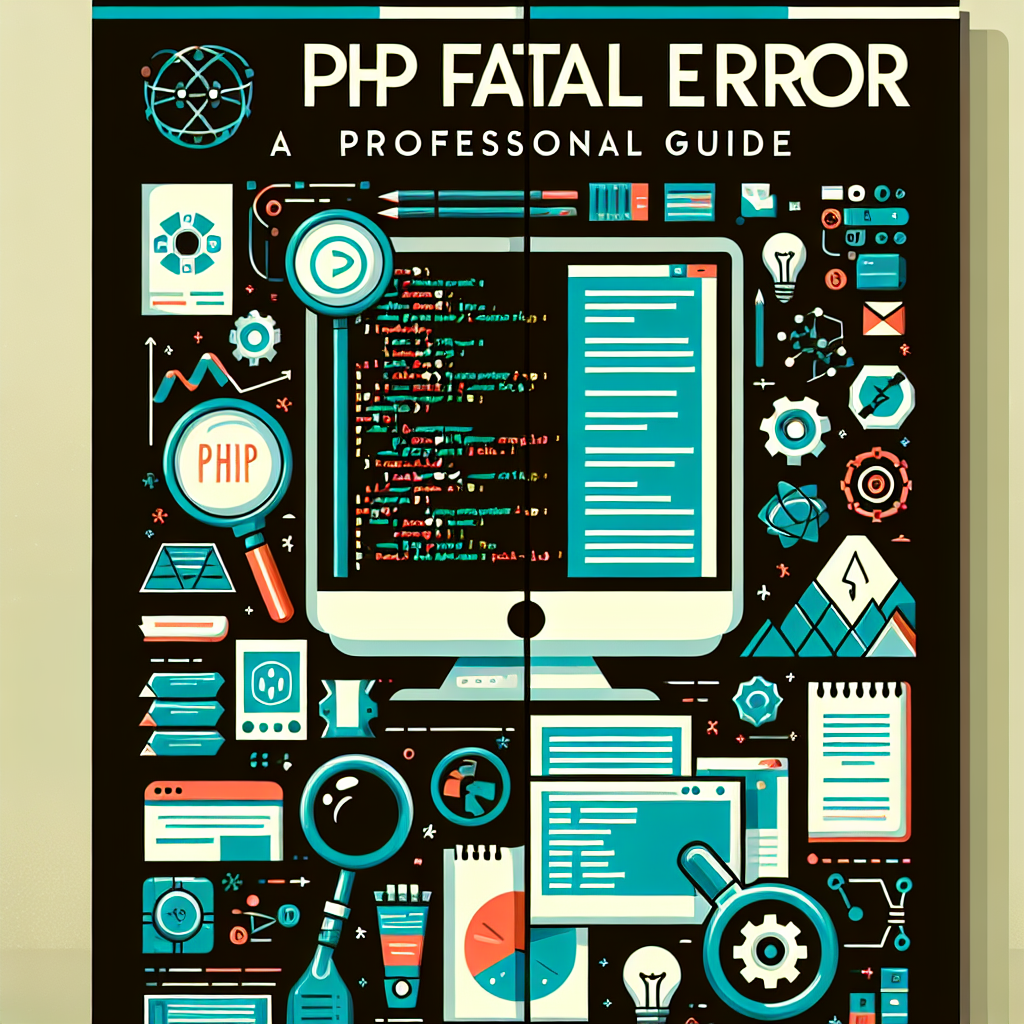Physical Address
304 North Cardinal St.
Dorchester Center, MA 02124

<!DOCTYPE html>
<html lang="en">
<head>
<meta charset="UTF-8">
<meta name="viewport" content="width=device-width, initial-scale=1.0">
<title>Resolving PHP Fatal Error: A Professional Guide</title>
<meta name="description" content="Learn how to efficiently resolve PHP Fatal Error with this comprehensive guide. Discover causes, solutions, and troubleshooting tips for effective problem-solving." />
<link rel="canonical" href="https://www.example.com/resolving-php-fatal-error" />
</head>
<body>
<h1>Resolving PHP Fatal Error: A Professional Guide</h1>
<p>As a seasoned programmer and server technician, I have encountered myriad challenges throughout my career. One of the most common yet perplexing issues is the PHP Fatal Error. This type of error can halt the execution of scripts and negatively impact web applications, ultimately affecting user experience. In this guide, I will share my personal journey of troubleshooting a PHP Fatal Error, as well as the steps I took to successfully resolve the issue.</p>
<h2>Understanding PHP Fatal Errors</h2>
<p>A PHP Fatal Error is a serious issue that typically occurs when the PHP interpreter encounters a problem that prevents a script from running. This error manifests itself in various forms, including:</p>
<ul>
<li>Uncaught exceptions</li>
<li>Memory limit exhaustion</li>
<li>Invalid function calls</li>
<li>Missing required files or classes</li>
</ul>
<h3>Common Causes of PHP Fatal Errors</h3>
<p>During my experience, I found that PHP Fatal Errors often arise from the following sources:</p>
<ol>
<li><strong>Syntax Errors:</strong> Minor mistakes, such as missing semicolons or brackets, can trigger fatal errors.</li>
<li><strong>Memory Limit Exhaustion:</strong> Every PHP script has a memory limit. When exceeded, this can result in a fatal error.</li>
<li><strong>Missing File or Class:</strong> Failing to include or require necessary files can lead to script failure.</li>
<li><strong>Compatibility Issues:</strong> Upgrading PHP versions may introduce deprecated functions causing existing code to fail.</li>
</ol>
<h2>My Experience with PHP Fatal Error</h2>
<p>Recently, while working on a web development project, I encountered a critical PHP Fatal Error. The application abruptly stopped functioning, and after investigating, I found a message that indicated a particular function could not be found. This error stood as a roadblock, and I knew I had to act quickly to restore functionality.</p>
<h3>Step-by-Step Resolution</h3>
<p>Resolving the PHP Fatal Error involved a systematic approach, which I detail below:</p>
<h4>Step 1: Identify the Error</h4>
<p>First, I carefully reviewed the error message displayed on my screen. The message indicated the line number and file where the error occurred, providing clarity on where to focus my attention.</p>
<h4>Step 2: Check PHP Syntax</h4>
<p>I inspected the code for any syntax errors. Utilizing tools like <a href="https://phpcs.github.io/">PHP CodeSniffer</a> helped identify minor mistakes that would have otherwise gone unnoticed.</p>
<h4>Step 3: Verify File Inclusion</h4>
<p>Next, I ensured all required files were correctly included in my script. This required auditing the relevant <code>require</code> and <code>include</code> statements to confirm they pointed to the correct paths.</p>
<h4>Step 4: Assess Memory Limits</h4>
<p>I reviewed the PHP memory limit settings by checking the <code>php.ini</code> configuration file. If necessary, I adjusted the memory limit to a higher threshold suitable for the application’s requirements.</p>
<h4>Step 5: Test Compatibility</h4>
<p>I ensured that my code was compatible with the current PHP version. If I found deprecated functions, I replaced them with their modern equivalents.</p>
<h3>Testing and Verification</h3>
<p>After executing the resolution steps, I conducted extensive testing to confirm that the PHP Fatal Error was resolved. I ran multiple use cases to ensure stability and performance. The diligent approach paid off; the application functioned seamlessly once again.</p>
<h2>Conclusion</h2>
<p>Experiencing a PHP Fatal Error can be daunting, but with a systematic approach, it is possible to identify and rectify the issue efficiently. By understanding the common causes, implementing effective troubleshooting techniques, and maintaining code integrity, I turned a challenging situation into a valuable learning experience.</p>
<h3>FAQs</h3>
<dl>
<dt>What is a PHP Fatal Error?</dt>
<dd>A PHP Fatal Error is a critical error that occurs when a PHP script cannot execute due to severe issues such as uncaught exceptions or memory exhaustion.</dd>
<dt>How can I prevent PHP Fatal Errors?</dt>
<dd>Implement thorough testing, maintain code quality, and regularly update to compatible PHP versions to prevent errors.</dd>
<dt>Where can I find more information on PHP error handling?</dt>
<dd>For detailed documentation, visit the official <a href="https://www.php.net/manual/en/errorfunc.php">PHP Manual on Error Handling</a>.</dd>
</dl>
</body>
</html>